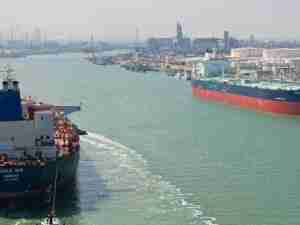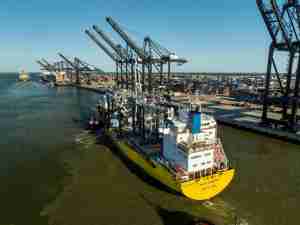Argentine grains workers threaten to extend strike; others may join
By: Reuters | Jul 16 2014 at 05:32 PM | Ports & Terminals
Grains inspectors who began a strike in Argentina's pivotal Rosario export hub will extend it for a second day if there is no progress on their demand for higher salaries, a senior union official said.
Other unions are also threatening labor actions, risking disruptions in the shipping of grains from Argentina, the world's third largest exporter of corn and soybeans. The striking workers check the quality of grains before they are stored and then loaded onto ships.
Strikes and labor disputes are common in Argentina, Latin America's No. 3 economy, which has one of the world's highest inflation rates and a depreciating currency that is eating into salaries. Argentine unions have hunkered down for a tough round of wage talks.
"(Wage) agreements reached last year are now totally outdated, given the inflation rate," said Pablo Palacio, secretary of the Union of Grain Recipients of Argentina (Urgara) in Rosario.
"During the latter hours of the day we will see whether to continue with the strike or not."
Urgara has demanded a wage increase of 45 percent for its workers. Private economists estimated inflation would top 30 percent this year.
A second trade union, the powerful CGT labor organization, was due to hold talks on Wednesday night to determine whether to strike for better working conditions.
Meanwhile, crews operating port vessels have threatened to walk out on Thursday, a move that could paralyse the movement of container ships. Truck drivers have vowed to strike beginning July 21.
The latest labor dispute comes near the end of the harvest for soy and corn, a peak time for exports. Typically thousands of truckloads of grain reach Rosario every day, with more than $20 billion worth of grains and soy products shipped every year.
Major grains exporters operating in Argentina include Bunge , Louis Dreyfus and Cargill. (Reuters)










